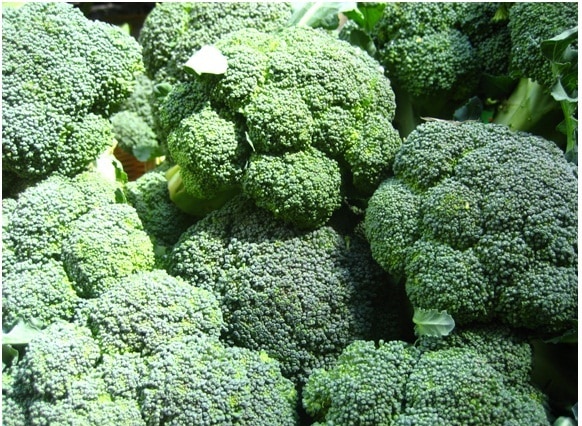“Let Food Be Thy Medicine and Medicine Be Thy Food” –Hippocrates
While Greek physician and “Father of Western Medicine” Hippocrates may not have been privy to the incredible cancer therapies of our time, he certainly was on to something with his teachings that food could make a difference in illness. Cancer prevention and treatment is one of the largest medical topics of our time however many answers still elude us.
One thing that we do know is that healthy, wholesome food can make difference when it come to slashing inflammation, neutralizing cancer causing free radicals and nourishing our bodies. Here are a few of those foods to include in your health Paleo diet.
Cruciferous Vegetables
Cruciferous vegetables such as broccoli, kale, cauliflower, Brussels sprouts and more have been shown to play an important role in health and cancer prevention. One benefit is their high fiber content. Fiber is thought to bind estrogenic compounds in the body, which may stimulate certain types of breast cancers.
Photo credit: Brocolli via photopin (license)
The rockstar in cruciferous vegetables is a compound called Indole-3-Carbinol or I3C, which is released with the breakdown of the vegetables. I3C is a powerful detoxification enzyme that neutralizes free radicals and prevents DNA damage to cells. I3C is also known to powerfully prevent estrogen fed tumors. While no minimum ‘dose’ of cruciferous vegetables has been determined to reap the maximum benefit, try starting out with 1 to 2 cups of cruciferous veggies per day. Here are few ideas: Sautéed Kale, Bacon Wrapped Brussels Sprouts, and Cauliflower Rice.
Garlic
Not only is garlic a potent anti-viral and anti-bacterial molecule it has been shown to have beneficial cancer fighting properties.
Photo credit: kjiploks_verephoto via photopin (license)
Garlic is thought to have powerful anti-inflammatory effects, kill harmful bacteria in the gastrointestinal tract and possibly help stimulate DNA repair. While garlic is beneficial for many health benefits, its cancer fighting properties are thought to be the greatest in preventing gastric and colorectal cancers. Try adding minced garlic to vegetables, protein dishes or dressings and marinades.
Berries
These brightly colored fruits are rich in anti-oxidants and phytochemicals that pack a cancer fighting punch.
Photo credit: Raspberries via photopin (license)
Berries serve as a delicious source of free radical scavengers that snap up cancer causing molecules in the body. Enjoying a cup of berries with breakfast or over salad is a great way to incorporate them into your diet. How about trying this very berry smoothie to start you day?
Omega-3 Fatty Acids
Omega-3 fatty acids, most commonly found in fish oil, are potent anti-inflammatory molecules that have wide ranging health benefits.
While Omega-3s are beneficial in reducing risk of developing cancer they also play an important role in coronary artery disease and preventing other chronic inflammatory conditions. Foods rich in omega-3 fatty acids are certainly part of a well-rounded Paleo diet. Try eating fatty fish like wild salmon, flax seed oil, chia seeds and walnuts to get more omega-3s into your meals.
Vitamin D
Vitamin D is a critical vitamin to know about. A deficiency of vitamin D has been linked with increased rates ofall-cause mortality, cancers and autoimmune illnesses.
Vitamin D has been studied extensively when it comes to cancer and cancer prevention. Vitamin D supplementation has been shown to reduce risk of multiple cancers, including breast cancer. While Vitamin D is traditionally obtained from exposure to sunlight, you can also boost your intake by consuming foods like while salmon, small fish like sardines or anchovies, or eggs.
Sign up for our meal plan so you’ll never have to ask “what’s for dinner?”




